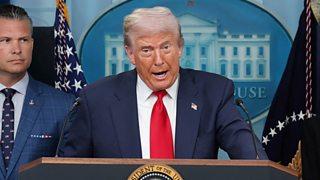Federal Expansion in Washington D.C. Security Following Trump’s Advocacy
Former President Donald Trump has recently amplified calls for the federal government to take direct control over Washington D.C.’s security operations, citing a surge in safety threats that local authorities have struggled to manage effectively. This push coincides with a notable increase in FBI patrols across the city, reflecting federal concerns about the District’s capacity to handle rising violent crime and politically charged protests. Trump’s stance reignites the ongoing debate over the unique governance structure of the nation’s capital, where local self-rule often clashes with federal oversight priorities.
Opponents warn that federal takeover efforts could undermine the city’s autonomy and democratic representation, while proponents argue that a centralized federal approach is essential to safeguard both residents and critical government infrastructure. Key elements of the current and proposed security framework include:
- Expanded FBI Patrols: Increased presence on streets and around federal landmarks.
- Federal Security Task Force: Potential creation of a federally managed unit to oversee law enforcement coordination.
- Joint Operations: Enhanced collaboration between local police and federal agencies.
| Security Component | Existing Arrangement | Suggested Modification |
|---|---|---|
| Law Enforcement Leadership | Primarily D.C. Metropolitan Police | Federal oversight with FBI involvement |
| Surveillance Coverage | Focused on federal properties | Expanded to encompass broader city areas |
| Jurisdictional Authority | Dominated by local governance | Increased federal jurisdiction |
FBI Steps Up Patrols to Combat Crime in Washington D.C.
In response to escalating public safety concerns, federal law enforcement agencies, particularly the FBI, have intensified their street-level presence throughout Washington D.C. This initiative targets high-crime neighborhoods and bustling commercial zones, deploying both plainclothes agents and uniformed officers to deter criminal activity and reassure the public. The increased patrols underscore federal commitment to proactive crime prevention amid questions about the local police force’s capacity.
This federal augmentation has sparked debate among city officials and political figures, with some viewing it as an essential partnership, while others caution against federal overreach into local affairs. The primary focus areas for these enhanced patrols include:
- Business Districts: Heightened security during peak hours to protect commerce.
- Transit Centers: Efforts to reduce theft and vandalism in public transportation hubs.
- Residential Areas: Community-oriented policing and surveillance to foster neighborhood safety.
| Patrol Location | Main Goal | Operational Hours |
|---|---|---|
| Downtown Core | Mitigate violent crime | Evenings and weekends |
| Metro Transit Stations | Prevent theft and ensure commuter safety | Throughout the day |
| Neighborhood Districts | Community engagement and crime monitoring | Daytime |
Legal and Political Consequences of Federal Intervention in D.C.
The idea of a federal takeover in Washington D.C. raises intricate questions about constitutional authority and the democratic rights of District residents. While Congress holds exclusive legislative power over the capital, overriding the Home Rule Act could set a precedent that diminishes local self-governance and challenges the democratic principles embedded in the 23rd Amendment. Legal experts caution that such a shift might erode the political voice of D.C. citizens and disrupt established governance frameworks.
Beyond legal ramifications, the political fallout could deepen rifts between federal and local officials, potentially eroding public confidence. Central concerns include:
- Responsibility: Determining who is accountable for public safety and law enforcement decisions.
- Representation: The impact of federal control on D.C.’s ongoing efforts toward statehood and full political representation.
- Security vs. Civil Liberties: Balancing the FBI’s expanded street presence with protections for individual rights.
| Group | Stance | Primary Concerns |
|---|---|---|
| District Leadership | Opposed | Threat to autonomy and voter disenfranchisement |
| Federal Authorities | Supportive | Ensuring order and federal jurisdiction |
| Local Residents | Mixed | Balancing safety with civil rights |
Community Engagement and Transparent Policing as Pathways Forward
In light of the contentious discussions surrounding federal involvement in D.C.’s law enforcement, experts and community advocates emphasize the critical role of transparent policing and active community engagement. Building trust between residents and law enforcement agencies is seen as vital to reducing tensions and fostering cooperation, especially in politically sensitive contexts. Recommended strategies include:
- Hosting frequent town hall forums to address community concerns and provide updates.
- Embedding community liaison officers within patrol teams to enhance communication.
- Establishing citizen advisory committees to oversee and guide policing policies.
Transparency is fundamental to effective law enforcement. Experts argue that openly sharing information about policing practices reassures the public that safety is prioritized without infringing on civil liberties. The table below highlights key transparency initiatives:
| Transparency Initiative | Expected Benefit |
|---|---|
| Release of Body Camera Footage | Enhances accountability and public confidence |
| Regular Crime Statistics Updates | Keeps the community informed and engaged |
| Disclosure of Use-of-Force Policies | Clarifies operational standards and expectations |
Conclusion: The Evolving Federal Role in D.C. Security
As discussions intensify over the federal government’s involvement in managing Washington D.C.’s security, former President Trump’s renewed advocacy for federal control spotlights the growing tensions between local governance and national security imperatives. With the FBI’s increased street presence, the situation remains dynamic, prompting critical examination of how best to balance public safety, democratic representation, and civil liberties in the nation’s capital. Stakeholders and observers alike will be monitoring these developments closely in the coming weeks.







